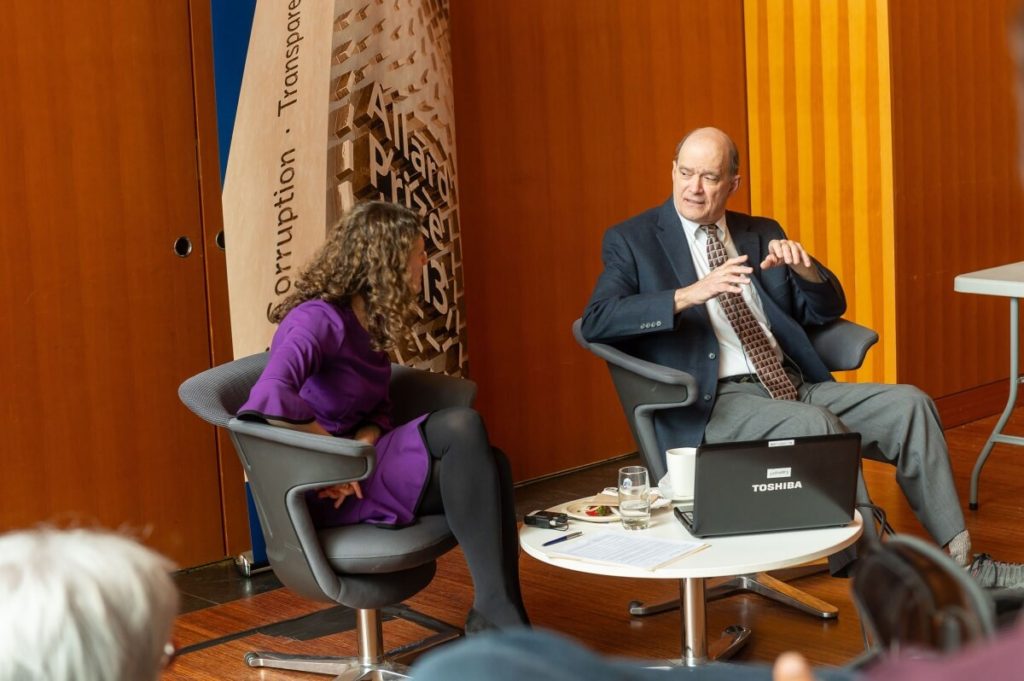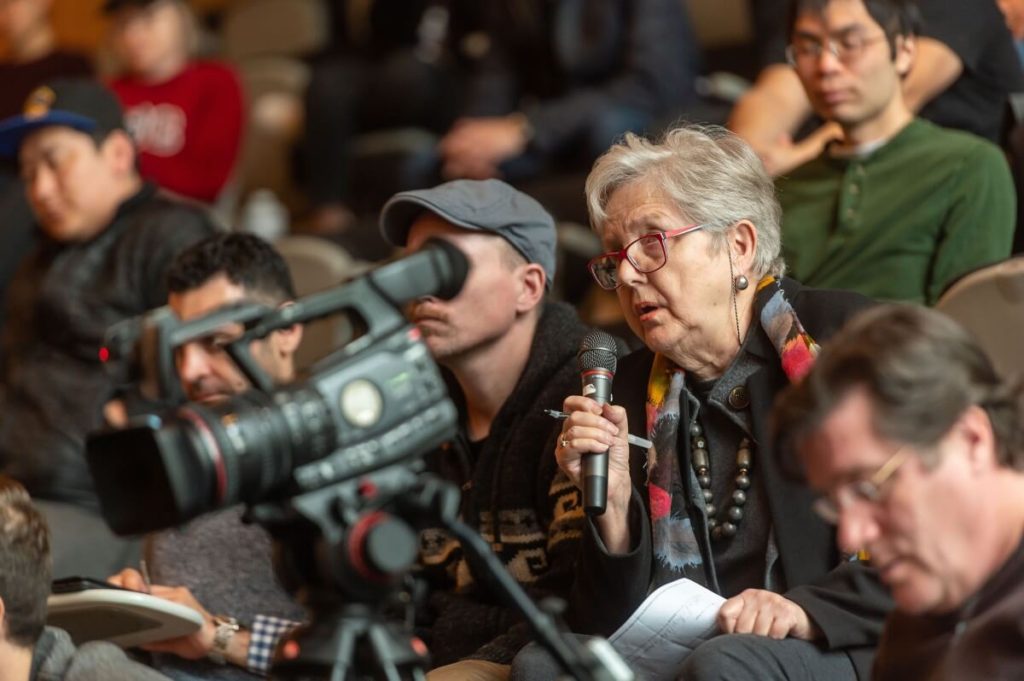On March 14, 2019 the Allard Prize for International Integrity welcomed Bill Binney to the Peter A. Allard School of Law to speak about his experience working as the technical leader for intelligence at the United States’ National Security Agency (NSA), and ultimately blowing the whistle on the government agency’s domestic surveillance practices. He also spoke about his continued fight to hold the government accountable for conducting illegal and unconstitutional surveillance on United States citizens.
His presentation challenged the notion that the surveillance state offered citizens better protection, and argued that the NSA’s spying on private citizens constituted a corrupt use of power and an unconstitutional violation of privacy laws. Binney explained his role in the development of ThinThread, a signals intelligence system with built-in encryption technology that allowed the NSA to collect and analyze communications data without violating privacy laws.
He said ThinThread was created largely in response to the overwhelming amount of data NSA officials were attempting to deal with. This technology could better sort and identify communications data that contained security threats, while still ensuring private citizen communications were kept private.
However, around the time of the September 11 attacks, ThinThread was cast aside in favour of a much more expensive alternative, Trailblazer, which analyzed communications data such as cellphone and email communications without encryption. Binney argued that the adoption of Trailblazer was a result of fraud and corruption at the NSA, and represented government waste and abuse of power.
He resigned and blew the whistle on this corruption and waste, as well as on the agency’s unconstitutional practices of domestic spying. What followed was a targeted silencing campaign, despite his and his colleagues’ attempts to use the proper government whistleblowing channels.
While Trailblazer was ultimately cancelled for being wasteful and ineffective, other invasive NSA “bulk acquisition” programs continued, despite their inherent violations of the US constitution. Binney highlighted a number of these programs. He also explained how the FBI, the CIA, and other organizations improperly use NSA data to arrest people, then substitute data later acquired using normal investigative methods in court. He said of this pattern: “It destroys the integrity of our judicial process…this is perjury; this is lying to the courts, (and) this is government policy.”

Bill Binney gestures during his discussion with Nicole Barrett, Director of Allard Prize Initiatives and panel moderator. Photo by Paul Joseph.
Binney has worked tirelessly to persuade those in power to put an end to these invasive programs and the related violations of judicial process, and has been consistently obstructed. To explain why those in power might refuse to shut down the NSA programs, Binney suggested that too many of those in a position to do anything are already culpable and that “everyone is trying to protect this source of bulk acquisition data, because it gives them power over everybody.” He called Congress’ persistent unwillingness to act on these rights violations treasonous, and remained committed to his position that the best way to “catch the really bad guys” was through targeted intelligence gathering, like the programs used in ThinThread.
Binney further criticized government agencies’ handling of whistleblower complaints, saying the damage to whistleblower’s reputations by government agencies prevented people from coming forward with information the public should know.
“Whistleblowers bring forward problems that need to be solved that will make the organization better,” he said. “Instead of addressing it and trying to make things better [the government is] crushing the people trying to make it better.”
During the question and answer period, Nicole Barrett, Executive Director of Allard Prize Initiatives, asked Binney what originally interested him in working for the NSA. Binney replied that he thought the goal of the NSA was to protect US citizens from security threats which was a noble cause. He also explained that as a mathematician, he enjoyed being able to solve data set puzzles and hoped they could be passed on to other security analysts. However, Binney said the culture of secrecy within the NSA and its technological developments started to make him question the motives of the agency.
One audience member asked Binney what his online presence was like, given all he knew about how it could be used by the NSA. Binney responded that he was very transparent with his internet usage and didn’t encrypt anything. “I encrypt nothing because I want them all to see what I’m doing and saying,” he said.
Binney courageously continues to expose the NSA’s domestic spying techniques and tell his story around the world, and to put legal pressure on the NSA and the US government, despite the suppression he faces. “Let them take me to court,” he exclaimed. “That’s where I want them.” Bill Binney’s remarkable presentation shed light on the corruption within the US intelligence community as well as the invasive use of private citizen data purportedly for national security purposes. His unwavering fight against this corruption, and for transparency, government accountability, and the rule of law, is an outstanding demonstration of the values of the Allard Prize and an inspiration to many.

An audience member poses a question during the Q&A segment. Photo by Paul Joseph.


